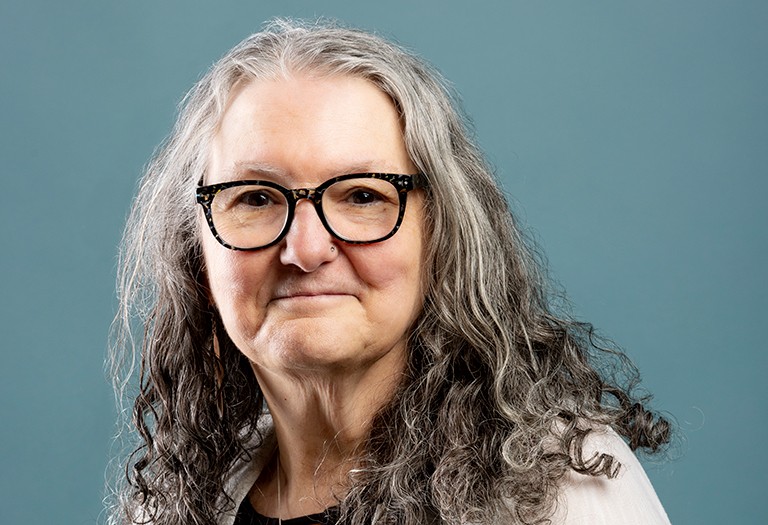3M Fellowship awardee Rosemary Reilly shares her perspectives on teaching
 Rosemary Reilly: “I believe in using learning as a lever for change.”
Rosemary Reilly: “I believe in using learning as a lever for change.”
Rosemary Reilly, a professor in the Department of Applied Human Sciences, is humble about what makes a great teacher.
“We often think that it’s the teacher who brings the spark to the classroom,” she says. “But that’s only half of the equation: the other half is the spark that students bring, which draws even more out of the teacher.”
Last spring, Reilly was awarded the 2024 3M National Teaching Fellowship by the Society for Teaching and Learning in Higher Education. We caught up with her about her journey in education, her perspectives on teaching now and in the future, and her thoughts for incoming teachers.
What does receiving the 3M Fellowship mean to you?
Rosemary Reilly: Being awarded the 3M Fellowship is a humbling experience that validates the work I’ve been doing in innovative classroom research and educational leadership. What makes this recognition even more special is the opportunity to connect with nine other inspiring teachers — eight women and one man! — from various disciplines across Canada, all of whom are passionate about teaching.
Our cohort’s interdisciplinary nature, from anthropology to psychology and from engineering to veterinary medicine, adds depth to our collective efforts. The support from my department and the chance to collaborate on a meaningful project, like the one we’ll be working on in Banff at our retreat, have been truly energizing and encouraging.
How do you balance your research and teaching?
RR: I see research and teaching as deeply interconnected and mutually enriching. I’m constantly experimenting with new approaches in the classroom, and this hands-on experimentation often leads to my action-research projects, where I assess the effectiveness of different methods and adapt accordingly. For example, I explored arts-based methods to address classroom processes and interpersonal challenges, and I’m about to embark on a collaborative research project with other Concordia professors integrating various contemplative practices into teaching.
I also believe in using learning as a lever for change, whether at the individual, organizational or community level. Embracing interdisciplinarity and transdisciplinarity is crucial in this regard. I view disciplines as artificial boundaries that limit our understanding of how everything is interconnected. By bridging these boundaries, we can better address complex, "wicked" problems and drive meaningful whole-system change.
What legacy do you hope to leave your students?
RR: I want them to recognize their own potential for growth and development and to embrace the idea that they are catalysts for positive change by cultivating their own compassion and kindness. My greatest wish is that they not only strive to be the change they want to see in the world but also take active steps to make that change a concrete reality.
Do you have any thoughts you would like to share with incoming teachers?
RR: Consider how you can create a classroom environment where you not only bring out the best in your students, but your students bring out the best in you. While every classroom shares common challenges and joys, each one is also unique. Approach each class with fresh eyes and be responsive to the specific needs of the students in the room. This attentiveness enhances their learning experience and helps them bring out the best in you as a teacher.
As Indigenous ways of knowing teach us, students are whole beings, encompassing physical, emotional, psychological, intellectual and even spiritual dimensions. While intellectual development is central in an educational institution, we must also nurture other facets. By promoting a holistic approach to education within every discipline, we help students become whole, well-rounded individuals and foster not just knowledge, but the development of balanced, responsible world citizens.
And above anything else, take care of yourself. You cannot pour from an empty cup.
Discover the innovative programs available in Concordia’s Department of Applied Human Sciences.


